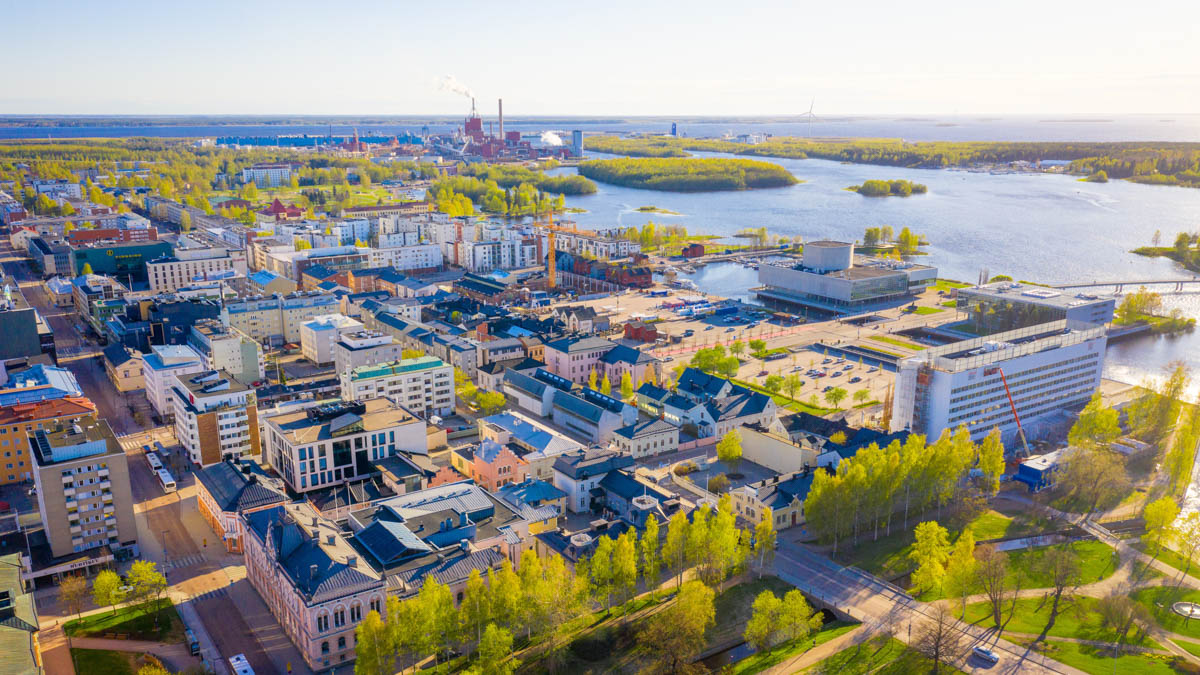Technologies and technical carbon sequestration solutions needed to reach EU’s 2040 climate target

On 6 February 2024, the European Commission issued a Communication concerning the climate target for 2040 and a Communication on Industrial Carbon Management. The Communications open up paths towards new clean solutions and further development of carbon sequestration.
The Communication on the 2040 target stresses that emission reductions will be needed in all sectors, and additional investments will be needed to support the development of technologies.
“Many of the priorities highlighted by Finland in advance are now reflected in the Commission Communication. For Finland it is important to ensure technological neutrality and cost-efficiency of the actions and the development of technical carbon sequestration. We are happy that nuclear power and capture and utilization of biomass-based carbon dioxide are now also included in the climate policy tools of the EU,” says Minister of Climate and the Environment Kai Mykkänen.
The European Commission recommends a net emission target of 90% for the EU by 2040. The target would cover both greenhouse gas emissions and their removals. The removals comprise natural removals and, in future, technical sinks. All sectors should cut their emissions strongly and cost-efficiently by 2040. According to Finland’s position discussed at Finnish Parliament last autumn, the 2040 climate target of the EU must be in line with the target to achieve climate neutrality in the EU by 2050 and support this in a way that is consistent and credible. It must also be founded on the best available scientific knowledge.
“Finland supports a consistent climate policy through which we can boost the EU’s competitiveness and create a certain and predictable environment for businesses to invest in clean solutions of the future. In delivering on the 2040 climate target the focus must be on emission reductions, and adequate room for manoeuvre must be allowed for the Member States to reach the targets,” Mykkänen says.
Energy sector has key role in Commission Communication on 2040 target
The Communication calls on all sectors to reduce their emissions strongly and cost-efficiently. Of the sectors, the energy sector is the most important one. According to the Communication, priority should be given to emission reductions.
The Commission considers that all decarbonisation solutions will be needed to reach the target. Among the solutions listed are technologies for carbon capture, storage and utilization (CCS and CCU). Now the Commission recognises the role of nuclear energy as part of the clean solutions more clearly than before. The Communication also mentions the development work on small modular reactors (SMRs).
According to the Commission, by 2040 renewable energy and nuclear power will cover 90% of the EU’s electricity consumption. However, significant investments will be needed in the electricity grid and storage of electricity. The other actions to be taken include phasing out fossil fuels and improving energy efficiency. From the Finnish perspective, what we should keep in mind in future is that, instead of restricting consumption, the energy efficiency targets should serve emission reductions and take comprehensively into account the technologies needed for the clean transition, including those based on the use of hydrogen.
The Commission stresses the role of emissions trading in setting a price on carbon and providing predictability in the long term. Emissions trading has an important role in reaching the climate targets because it enables to reduce emissions in the whole EU in a way that is as cost-efficient and predictable as possible.
Electrification, development of production processes, low-carbon fuels and capture of process emissions will make it possible for industries to significantly reduce their CO2 emissions.
Communication on Industrial Carbon Management promotes carbon capture and utilization
On the same day, the Commission also issued a Communication on industrial carbon management. According to the Commission’s impact assessment, to achieve the climate targets of the EU the amount of carbon dioxide captured annually should be 50 million tonnes in 2030 and 450 million tonnes by 2050.
Carbon capture, utilization and storage (CCUS) refers to technologies that reduce the amount of carbon dioxide emissions ending up in the atmosphere. In carbon capture carbon dioxide is separated from the emission flows of industrial processes or energy production before it enters the atmosphere.
In carbon utilization biomass-based carbon dioxide or carbon dioxide recovered directly from the atmosphere is converted into useful products or fuels. It could also be used in chemical processes such as the manufacture of plastics, fertilisers or synthetic fuels, or be incorporated into construction materials.
“A significant percentage of Europe’s biogenic carbon dioxide is produced in Finland, where it can be sucked from industrial smokestacks. It is also possible to create more advanced value chains for the carbon dioxide that is captured to substitute for fossil coal as raw material,” Minister Mykkänen says.
The Commission's view is that the European carbon value chain will take shape in stages. Adequate storage capacity, the necessary transport infrastructure and a clear framework for access to the stores will be ensured by 2030. The Commission considers it important that access to geological stores will not become a bottleneck for the progress of CO2 capture projects. The Commission intends to map out potential geological stores within the EU and prepare guidelines for permit procedures concerning these.
Related links
- Communication on EU2040
- Communication: Towards an ambitious Industrial Carbon Management for the EU (press release)
- Finland’s position on the EU’s 2040 climate target (20 November 2023) | eduskunta.fi
- EU climate policy | ym.fi
Inquiries
Requests for interviews with the Minister:
Emma-Stina Vehmanen
Special Adviser to the Minister of Climate and the Environment
tel. +358 40 847 1992
Communication on EU2040:
Laura Aho
Ministerial Adviser
Ministry of the Environment
tel. +358 295 250 135
laura.aho(at)gov.fi
Communication on Industrial Carbon Management:
Ville Niemi
Senior Specialist
Ministry of Economic Affairs and Employment
tel. +358 295 047 339
ville.niemi(at)gov.fi
